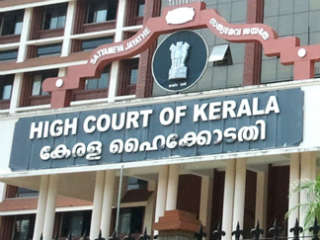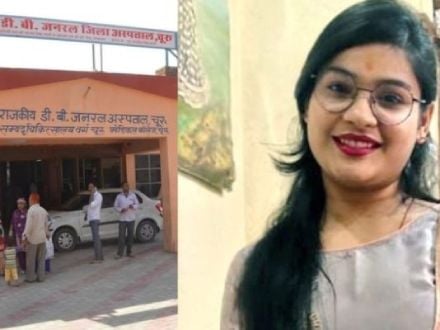In a significant judgement, the Kerala High Court has held that salaries paid to nuns and priests of religious congregations working as teachers in government or government-aided educations institutions are liable for tax deduction at source (TDS).

According to the reports, the Kerala High Court pronounced an order saying that nuns and priests will have to pay income tax as their salaries are liable for tax deduction at the source.
Quoting the Bible verse – “Render unto Caesar the things that are Caesar’s and unto God the things that are God’s”, the Kerala High Court bench comprising Justice SV Bhatti and Justice Bechu Kurian Thomas dismissed the pleas of several priests and nuns who had opposed Tax Deduction at Source on the salaries they had been receiving while working in government and aided educational institutions.
The court observed that such a tax deduction does not violate freedom of religion under Article 25 of the Constitution.
“Article 25 does not provide any immunity from taxation on the basis of religion”. “If a valid law permits deduction of tax at source, we find ourselves at a loss to assimilate the scope of the contention that deduction of tax at source violates the fundamental right to freedom of religion,” the Court remarked.
Meanwhile, the applicants cited circulars issued by the Central Board of Direct Taxes (CBDT) in 1944 and another in 1977 to claim exemption from TDS. The government had also submitted that the CBDT circulars refer to the income earned by ‘missionaries’ as ‘fees’ and not as the salary earned by nuns or priests.
The appellants also contended that as per the canon law, once a perpetual vow of poverty is taken, the nun or priest undergoes a civil death, and thereafter, they are not ‘persons’ under the Act. The petitioners argued that Nuns and priests are not entitled to have any income or hold any property, and all their properties, assets including salary and pension, belong or accrue to the religious congregation.
However, the Court held that the concept of civil death is alien to the Income Tax Act, and the same cannot be incorporated into the statute book through any mode of interpretation. The court noted that the canon law cannot have predominance over the Income Tax Act under any circumstances.
The court observed that it is the statutory duty of the person paying any income as salary to another to deduct, at the time of making the payment, income tax at the rates in existence. The High Court noted that none of the provisions in the IT act gives an exemption for any category of persons based on their nature of vocation or occupation.
“The legislation enacted by the legislature gains primacy and supremacy over the personal laws,” said the court.
Source : OpIndia

 Rajasthan: Woman found hanging at a beauty parlour, Arshad, 3 others booked
Rajasthan: Woman found hanging at a beauty parlour, Arshad, 3 others booked Chhattisgarh: Naxal top commander along with 28 other Naxals killed in a joint operation
Chhattisgarh: Naxal top commander along with 28 other Naxals killed in a joint operation Andhra Pradesh: Farooq kills mentally challenged Hindu man for insurance money
Andhra Pradesh: Farooq kills mentally challenged Hindu man for insurance money 2 ISIS terrorists arrested in Germany for sexual abuse of minor Yazidi children
2 ISIS terrorists arrested in Germany for sexual abuse of minor Yazidi children UK: Over 50 children were sexually abused by paedophile catholic monks for decades
UK: Over 50 children were sexually abused by paedophile catholic monks for decades China, not India, interfered in 2019 and 2021 Canada elections, says Canadian panel
China, not India, interfered in 2019 and 2021 Canada elections, says Canadian panel